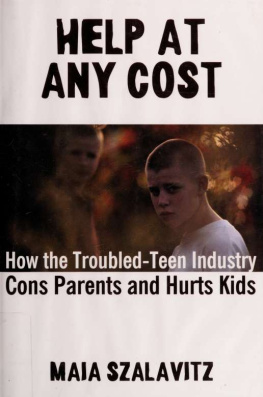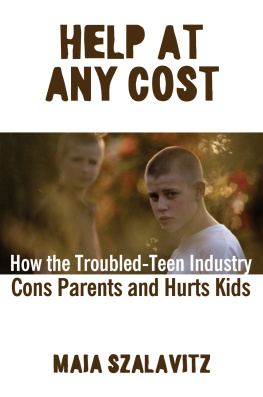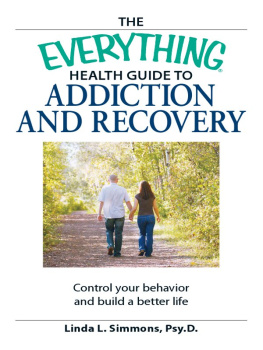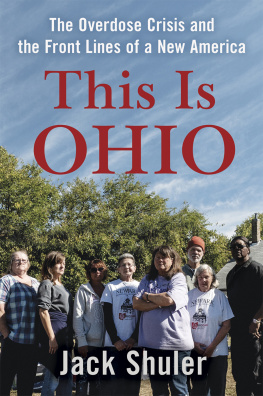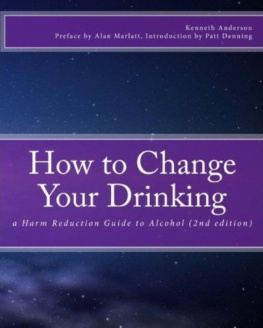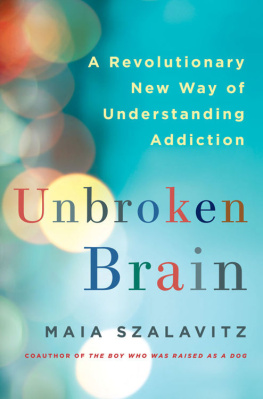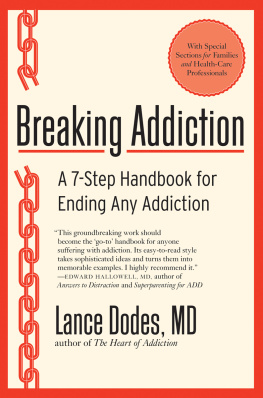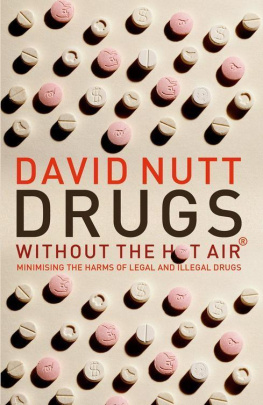Maia Szalavitz is one of the bravest, smartest writers about addiction anywhere. Everything she writes should be read carefullyI guarantee youll have a lot to think about, and youll know far more than at the start.
J OHANN H ARI , New York Times bestselling author of Chasing the Scream
Maia Szalavitz is one of our most incisive thinkers about neuroscience in general and addiction in particular and her writing is astonishingly clear and compelling. In the timely, important, and insightful Unbroken Brain, Szalavitz seamlessly interweaves her moving personal story with her investigation into what addiction is (and isnt) and how we can most effectively prevent and treat it.
D AVID S HEFF , New York Times bestselling author of Clean and Beautiful Boy
Through the lens of her own gripping story of addictionsupported with empirical evidenceSzalavitz persuasively shows that addiction is a disorder of learning, not one characterized by progressive brain dysfunction.
C ARL H ART, PhD, author of the Pen/E. O. Wilson Literary Science Writing Awardwinning High Price: A Neuroscientists Journey of Self-Discovery That Challenges Everything You Know about Drugs and Society
Of the countless writers out there whose focus is addiction, no one can begin to touch the brilliance of Maia Szalavitz. She is by far my favorite addiction writer, perhaps one of my favorite writers ever. Her passion and exceptional writing talent combined with her exhaustive research, create a book that will inspire, educate, enrage, and entertain. I can only promise one thing: if you read this book, you will never be the same again.
K RISTEN J OHNSTON , actress, author of the New York Times bestselling memoir Guts, addiction advocate, founder of SLAM NYC
As more professionals realize that addiction isnt really a disease, our challenge is to determine exactly what it is. Szalavitz catalogs the latest scientific knowledge of the biological, environmental and social causes of addiction and explains precisely how they interact over development. The theory is articulate and tight, yet made accessible and compelling through the authors harrowing autobiography. Unbroken Brain provides the most comprehensive and readable explanation of addiction Ive yet to see.
Marc Lewis, author of The Biology of Desire
a new way of looking at drug addiction that offers a fresh approach to managing it. [Szalavitz] writes frankly about her background In a heartfelt manner, she exposes her own fears and pain A dense blending of self-exposure, surprising statistics, and solid science reporting that presents addiction as a misunderstood coping mechanism, a problem whose true nature is not yet recognized by policymakers or the public.
Kirkus
Anyone who has battled addiction or seen it harm a loved one will gain insights from Unbroken Brain, and if it influences policymakers, too, everyone will benefit
Associated Press
Journalist Szalavitz offers a multifaceted, ground-up renovation of the concept of addictionboth its causes and its cures.
Publishers Weekly
Ms. Szalavitz deftly threads her life story through the book to illustrate the dynamics that put people at risk of addiction.
The Wall Street Journal
Szalavitz makes a novel and even beautiful proposal. Addiction, she hypothesizes, is a developmental disorder. Specifically, it is a learning disorder [Szalavitz] explores problems with the criminalization of drugs, the place of racism in our cultures treatment of drugs and addiction, and she looks closely and illuminatingly at different treatment methods. Theres a lot of news you can use in this book if you or someone you love is an addict.
NPR.org
Unbroken Brain: A Revolutionary New Way of Understanding Addiction
Help at Any Cost: How the Troubled Teen Industry Cons Parents and Hurts Kids
With Bruce D. Perry, MD, PhD: The Boy Who Was Raised as a Dog and Other Stories from a Child Psychiatrists Notebook
Born for Love: Why Empathy Is Essentialand Endangered
With Joe Volpicelli, MD, PhD: Recovery Options: The Complete Guide
Copyright 2021 by Maia Szalavitz
Cover design by Terri Sirma
Cover photograph Olha Kozachenko/Shutterstock
Cover copyright 2021 by Hachette Book Group, Inc.
Hachette Book Group supports the right to free expression and the value of copyright. The purpose of copyright is to encourage writers and artists to produce the creative works that enrich our culture.
The scanning, uploading, and distribution of this book without permission is a theft of the authors intellectual property. If you would like permission to use material from the book (other than for review purposes), please contact permissions@hbgusa.com. Thank you for your support of the authors rights.
Hachette Go, an imprint of Hachette Books
Hachette Book Group
1290 Avenue of the Americas
New York, NY 10104
HachetteGo.com
Facebook.com/HachetteGo
Instagram.com/HachetteGo
First Edition: July 2021
Hachette Books is a division of Hachette Book Group, Inc.
The Hachette Go and Hachette Books name and logos are trademarks of Hachette Book Group, Inc.
The publisher is not responsible for websites (or their content) that are not owned by the publisher.
Library of Congress Cataloging-in-Publication Data
Names: Szalavitz, Maia, author. Title: Undoing drugs : the untold story of harm reduction and the future of addiction / Maia Szalavitz.
Description: First edition. | New York : Hachette Go, [2021] | Includes bibliographical references and index. Identifiers: LCCN 2021015025 | ISBN 9780738285764 (hardcover) | ISBN 9780738285757 (ebook)
Subjects: LCSH: Drug addictionUnited StatesHistory. | Harm reductionUnited StatesHistory. | HIV infectionsUnited StatesPreventionHistory. | Needle exchange programsUnited StatesHistory. | Drug addictsHealth and hygieneUnited StatesHistory. | Drug addictionTreatmentUnited StatesHistory. | Drug abuseUnited StatesPreventionHistory.
Classification: LCC HV5825 .S948 2021 | DDC 362.290973dc23 LC record available at https://lccn.loc.gov/2021015025
ISBNs: 978-0-7382-8576-4 (hardcover); 978-0-7382-8575-7 (ebook)
E3-20210611-JV-NF-ORI
To Edith Springer
W RITING THIS BOOK HAS BEEN AN EXTRAORDINARY EXPERIENCE, INVOLVING wrangling hundreds of interviews and thousands of documents, websites, films, and books. Throughout the process, I have been acutely aware that I am the first to try to write the story of harm reduction in Americaand painfully conscious of how much Ive had to leave out in order to create a book that is readable. The resulting work is at best a first approximation, a place where others can start to understand the roots of this ideaand is in no way meant to be taken as complete or as implying that the stories that had to be left out are less important than those I was able to include. There is so much more to tell!
Many additional specialized works need to be written, particularly to encompass the story of harm reduction outside of the United States and within specific communities. To aid that process, I am creating an archive of interviews and other material, which will be available online for anyone who wishes to dig further. It will initially be at maiasz.com and later have a dedicated site. I hope people will use it extensively. I also want to note that as a person who engaged with this movement from almost the beginning, my work will inevitably reflect my own perspective and not that of either a complete outsider or a movement leader. Again, I would like the book to be a spur to further thought, discussion, and, yes, argument. It is in no way intended as the final word or as the only way to view harm reduction and its origins.
Next page

